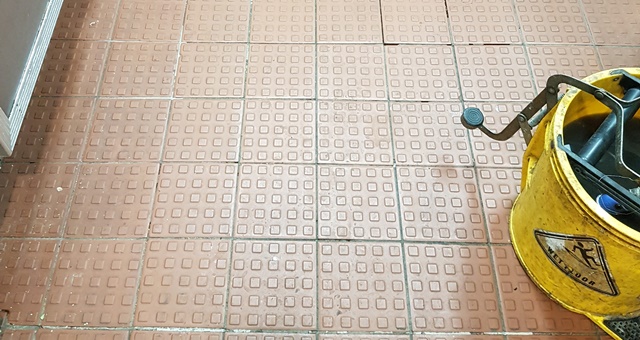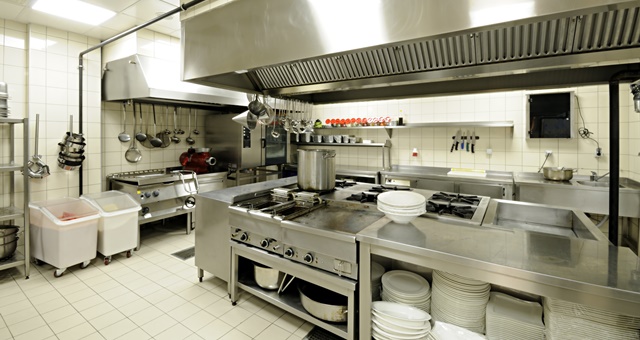At first glance and to many untrained eyes, hotel kitchens may appear to be literally shining examples of cleanliness and hygiene. Rarely, if ever, will you see a hotel kitchen left in a state of untidiness or reproach.
But on this alone, a hotel’s kitchen will likely not achieve a 100% score in a health inspection. It might score in the high 90s but in these times of ultra-hygiene and heightened health standards, is that really good enough?
Many hotels have opted to maximise their downtime and periods of forced closure by completing overdue renovations and refurbishments to ensure their property will be not just looking its best but will be in full readiness to comply with physical distancing requirements. These rules will apply to staff as much as it will for patrons and guests.
According to Geoff Biddle from GroutPro, best practice for modern-day commercial kitchens has moved beyond traditional tile grouting, which is typically cement-based and highly capable of absorbing food particles, liquids, bacteria and other dangerous pathogens.

“To achieve best practice and a non-porous surface, cement based grout needs to be removed and replaced with epoxy grout,” Biddle said.
“Depending on the type of kitchen, it may be necessary to install a special grade of epoxy grout that is resistant to Oleic Acid which is a by-product of frying foods.”
Grout is an often overlooked aspect of a kitchen’s make-up. Whilst food preparation surfaces are often stainless steel, with walls and floors finished with glazed tile which does go some way to resisting contaminants, it is not impenetrable. Pores in this conventional cement based grout can allow dirt, mould and mildew to become embedded over time, acting as an sponge of sorts for stains, which will in turn adhere to the grout lines and eventually become discoloured.
Epoxy grout is now often specified in construction design and is the direction many construction engineers are now heading, for several reasons. Leading the way is its non-porous nature and its ability to resist the damaging chemicals used in commercial cleaning products, which will see it maintain its integrity. It isn’t perfect however, usually taking longer to apply in a process which must be carried out in stages due to its quick-dry nature.
On the flip side, epoxy grout is easier to clean, hard wearing and crucially, not absorbent, making it perfect for hotel kitchens.

“Installation of the correct grade of epoxy grout into floors and walls provides a hard wearing, long lasting, impervious, easily cleaned surface to help maintain a high level of hygiene in the kitchen,” Biddle added.
“During the re-grouting process, replacement of damaged tiles, correction and repair of floor drains and other damage can also be performed to eliminate gaps, cracks and holes that can harbour contaminants and bacteria.”
“If kitchens are being redesigned to meet distancing requirements, resulting damage can be repaired to reinstate floors and walls to being clean, smooth and uninterrupted. These same services are very often applied to guest rooms, bars, restaurants, saunas, pools, lobbies and many other places within hotel properties.”
For more information on epoxy grout and how it can improve your kitchen, phone GroutPro on 1800 738 039.

